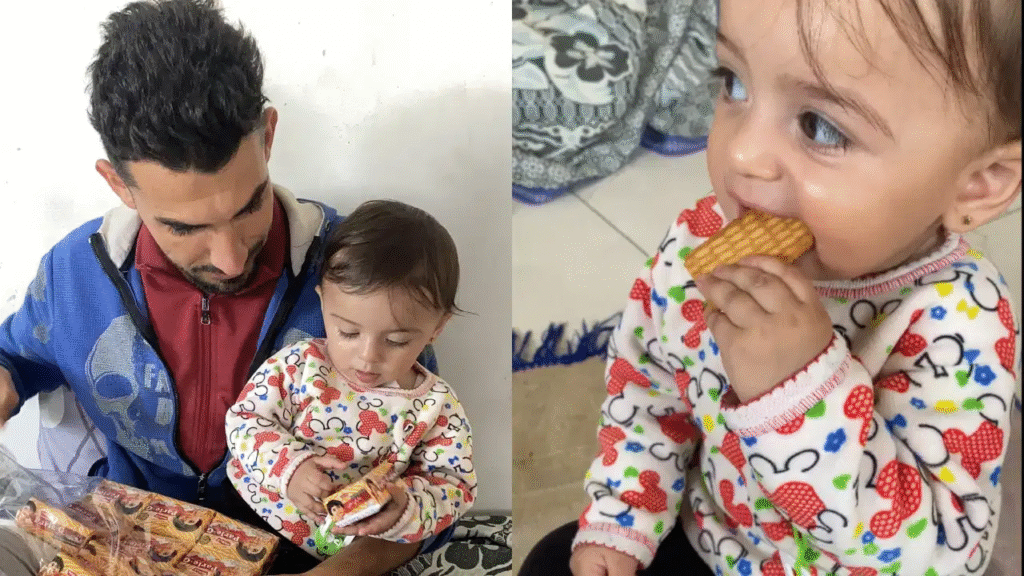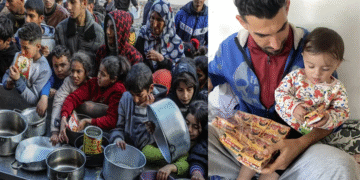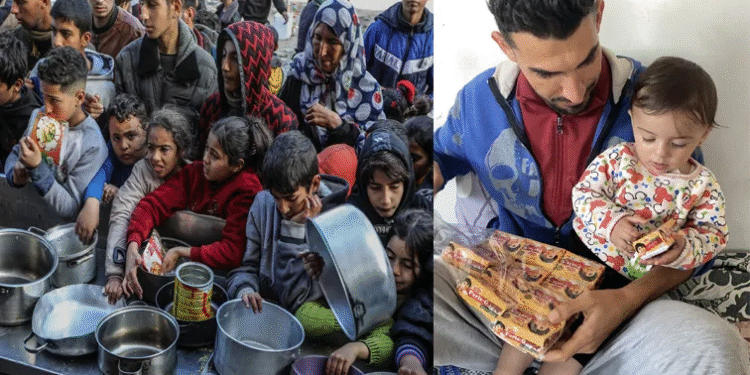Exclusive report by NDTV revealing how a Rs 5 Indian biscuit is being sold for Rs 2,400 in Gaza, highlighting price inflation and supply challenges in the region.
In an astonishing revelation, NDTV brings to light the staggering price inflation of a simple Indian biscuit in the Gaza Strip, where a product originally costing just Rs 5 in India is reportedly being sold for an eye-watering Rs 2,400. This incredible price difference reflects the severe supply chain disruptions, economic hardships, and ongoing conflict that have crippled the region, making even the most basic commodities a luxury for many.
Gaza, a narrow strip of land along the Mediterranean, home to over two million Palestinians, has long been under a blockade that severely limits imports and exports. The restrictions imposed by Israel and Egypt, citing security concerns, have caused frequent shortages of food, medicine, and other essential goods. In this context, the simple Indian biscuit, which is affordable and widely available in India, has become a scarce and expensive commodity.
Due to limited access, many items have to be smuggled through underground tunnels or transported via indirect and costly routes, leading to an exponential increase in prices. The Rs 5 biscuit’s journey from an Indian factory to a shop shelf in Gaza involves multiple intermediaries, bribes, taxes, and transportation costs, all of which multiply the retail price drastically.
For ordinary people in Gaza, already grappling with unemployment rates exceeding 40%, ongoing power shortages, and restricted access to healthcare, such price hikes are more than just a financial burden—they are a stark reminder of the harsh realities they face daily.
The inflated cost of everyday items like Indian biscuits means that families are forced to make difficult choices about their limited income, often prioritizing essential food staples over other products.
Moreover, the price disparity highlights the broader issue of economic isolation that Gaza experiences. Without stable trade routes and access to global markets, residents are left with inflated costs for goods, stunting economic growth and deepening poverty.
The black market thrives in situations where goods are scarce or regulated, and Gaza is no exception. Items like the Indian biscuit become hot commodities, bought in bulk from wherever they can be sourced and sold at exorbitant prices. This informal economy is fueled by desperation and the demand for even small luxuries, such as snacks, that offer a semblance of normal life amidst conflict.

Supply chains that normally function smoothly in peacetime are broken, forcing reliance on unofficial channels. These channels are risky and expensive, driving prices higher. The Rs 2,400 price tag for a Rs 5 biscuit exemplifies how disruption in supply chains can create extreme market distortions.
NDTV’s exclusive report also sheds light on the personal stories of Gaza residents who recount the difficulties of acquiring simple food items. Many describe waiting hours or days to secure even basic groceries, often at prices that far exceed their means. Children who once enjoyed biscuits as snacks now see them as rare treats, available only to those who can afford the inflated costs.
These human stories bring urgency to the discussion around Gaza’s economic conditions, emphasizing that price inflation is not just a number—it directly affects lives, nutrition, and morale.
Addressing this issue requires both short-term relief and long-term political solutions. Humanitarian aid organizations continue to provide food and medical supplies to Gaza, but these efforts are often hampered by restrictions and logistical challenges.
International diplomatic efforts aimed at easing the blockade, facilitating trade, and promoting economic development in Gaza are critical to breaking this cycle of scarcity and inflated prices. Meanwhile, consumers in India and globally can take note of how interconnected economies are and how geopolitical conflicts impact everyday goods and people’s lives.
The Rs 5 Indian biscuit selling for Rs 2,400 in Gaza stands as a powerful symbol of the hardships faced by the people living under blockade and conflict. NDTV’s exclusive coverage not only reveals the shocking price disparity but also invites reflection on the broader implications of economic isolation and the urgent need for humanitarian and political solutions. Behind every inflated price tag lies a story of resilience and struggle, reminding the world that peace and stability are essential for basic human needs to be met affordably and fairly.
Read Also : Vijay Mallya Breaks Silence on Kingfisher Collapse: ‘I Went to Shri Pranab Mukherjee’ – 3 Key Revelations















 Categories
Categories









